 Feeling Blue This Holiday Season? Here are 5 Tips for Feeling Better from cure advocate kristina rhoades:
Feeling Blue This Holiday Season? Here are 5 Tips for Feeling Better from cure advocate kristina rhoades:
There’s so much to love about this time of year – festive music, twinkling lights, special traditions and social gatherings. But the holiday season isn’t happy for everyone.
For people that struggle with depression, loneliness or loss, the holidays can be a really difficult time.
This season reminds many people of loved ones they’ve lost and others struggle with facing the holidays alone. Money can get extra tight this time of year and life is even busier than usual. And for a lot of people with disabilities, the colder weather brings pain that they don’t experience in the warmer months. Seasonal Affective Disorder also comes into play for many, which is related to reduced exposure to sunlight in the winter.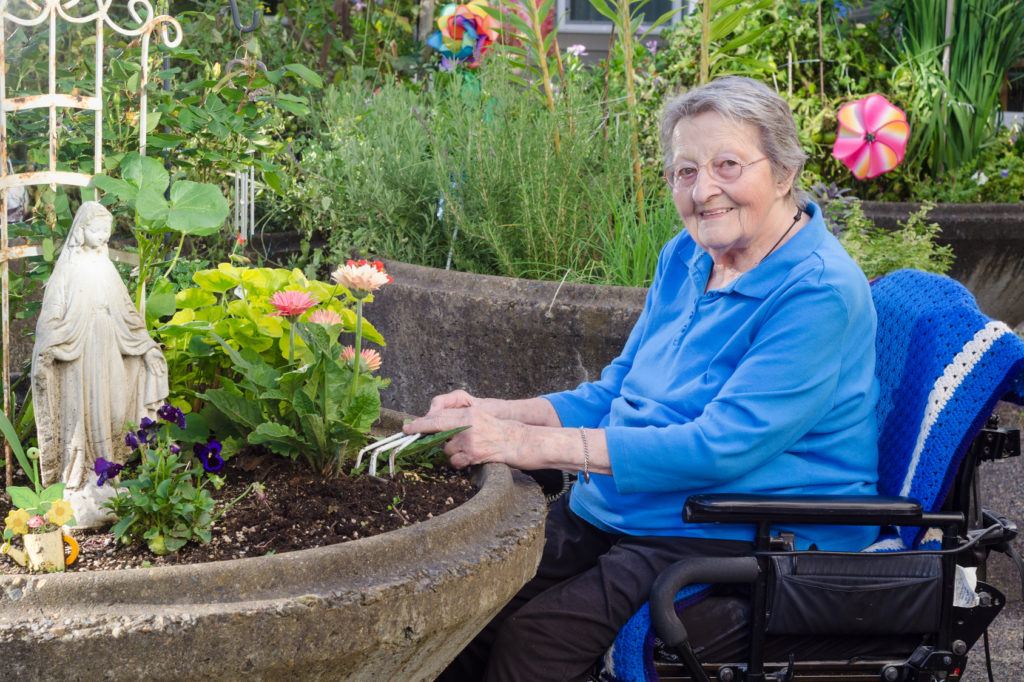
Right now the days are shorter, so don’t miss out on your chance to enjoy the feel-good benefits of the sun!
According to the Center for Disease Control, about 9% of adults experience depression, but that percentage is significantly higher for the disability community, and these numbers increase during the holidays.
If you’re feeling down this holiday season, it’s important to know that you can take steps to feel better. Below, you’ll find our 5 suggestions for combatting the blues and getting through to the New Year.
1. Do What Feels Good to YOU
Around the holidays, we often feel obligated to attend parties and get-togethers, buy presents for everyone we know and participate in traditions that may cause some pain. The pressure of it all can be overwhelming and we sometimes fail to take care of ourselves out of the desire to please others. But, there’s no rule that says you have to do any of it.

Dawn Cline loves the thrill and competitiveness of bowling! What is your passion?
Take this as your permission slip to do what you need to feel good this holiday season.
Instead of spending too much money on presents, try making gifts for loved ones (Pinterest is a fun and creative resource if you need ideas).
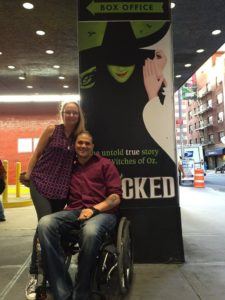
Consider going to a show, like Adam and Maureen Bacon did!
Rather than stressing yourself out with too many social engagements, decline a few invites and get some “me” time in. Skip the social media for a month or two if it brings up too many memories that you don’t care to revisit.
In fact, if it’s all a little too painful, you don’t have to participate in the holidays at all.
You have every right to choose to escape on a trip or have a comedy movie marathon on Christmas day. You can opt out of decorations and make up your own non-traditional traditions that feel better to you.
2. Take care of your body
There are two factors in our complete control that have tremendous impact on our emotional well-being: diet (as in the fuel we feed our bodies) and exercise.
We know this isn’t news to you, but we want to emphasize the importance of eating well and being active when dealing with depression.
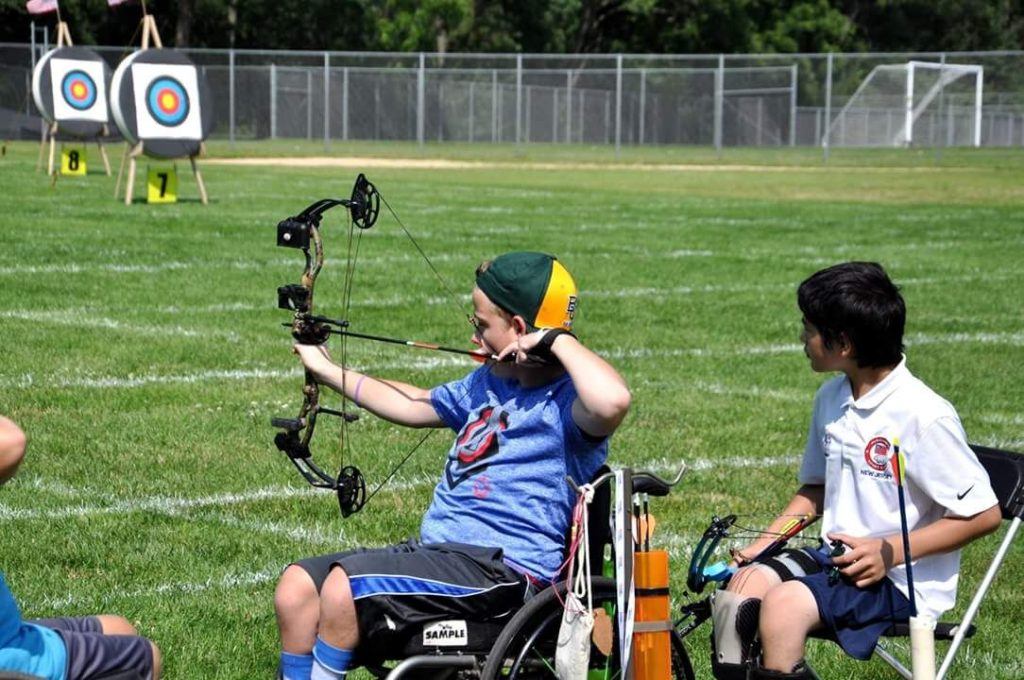
Zachary Carter will be the first to tell you that being active feels GOOD!
Our bodies and brains need good food to function properly. Things like sugar, alcohol and gluten are fine for many people in moderation, however, we tend to consume much more of them during the holidays, which can leave us feeling less than our best.
Taking care to drink plenty of water and making healthier choices when you can will make a big difference in the way you feel.
What about exercise? It’s far too easy to skip the gym this time of year because our schedules are so crazy. Unfortunately, the lack of physical activity only leaves us feeling worse. The benefits of exercise are numerous – and about much more than just building muscles.
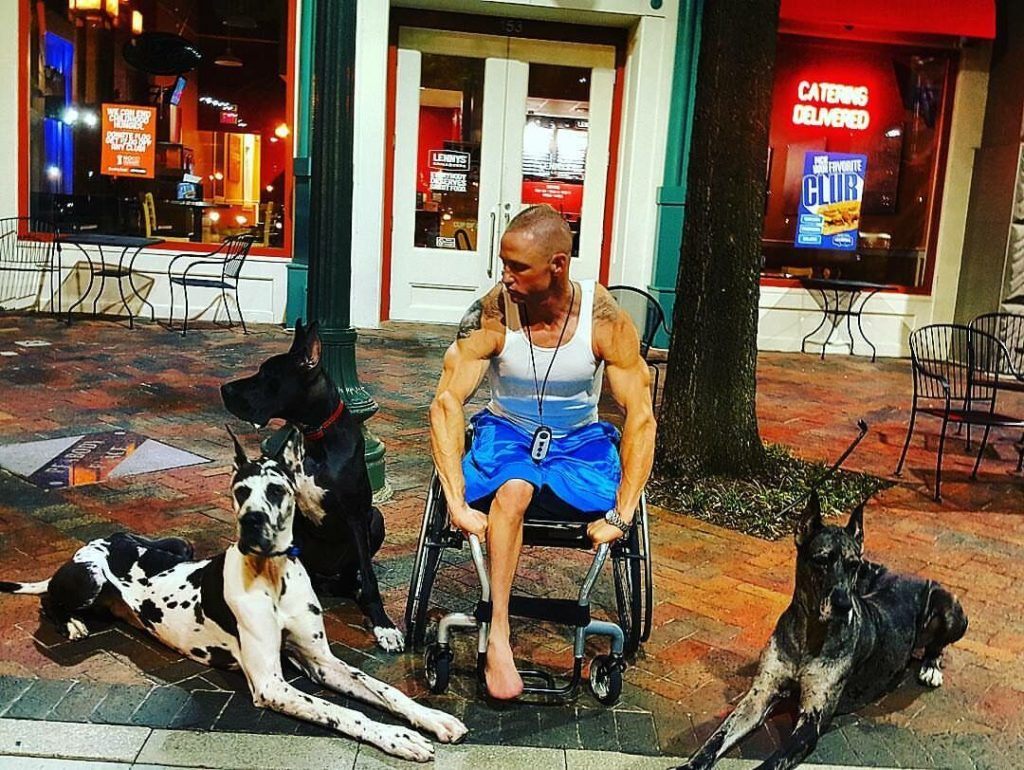
Brandon Smith knows a lot about building muscles, but he also knows that he gets more out of working out beyond that too.
Time Magazine reports, “Exercise triggers the release of chemicals in the brain—serotonin, norepinephrine, endorphins, dopamine—that dull pain, lighten mood and relieve stress.”
So, rather than passing on your workouts this season, schedule in some extra strolls, gym time, adaptive sports or yoga, or anything else you enjoy that gets you moving. You’ll be glad you did.
3. Give back
In our article about creating jobs from home, we talked about the benefits of volunteering to build experience and a network. Community service and giving to others can also go a long way to boosting your mood. There are a lot of people in need at this time of year, so the options are plentiful.
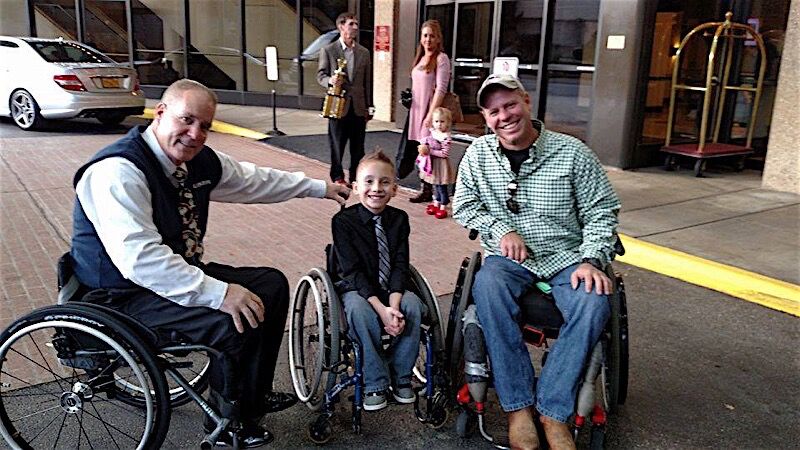
Consider being a big brother or big sister to a young person who has similar circumstances. They’ll appreciate your wisdom and your friendship! Here, Bryson Dowdy loves his older buddies in his community.
Some great, affordable options for “giving back” are serving meals at a homeless shelter, making presents or meals for kids in need, volunteering at your rehab or local hospital, or putting together care packages for soldiers, firefighters and other service members that work to keep us safe during the holidays.
When we focus on helping others, we feel more fulfilled, connected and useful – which contradict the feelings of depression.
4. Explore complimentary therapies
There are so many practices and alternative therapies that can support what you’re already doing to feel better. Acupuncture, massage and acupressure are options, but require a practitioner – which can also cost money. If funds are an issue, don’t fear.
Many people experience emotional benefits from practices that they can do at home, including meditation, aromatherapy, prayer and art therapy.
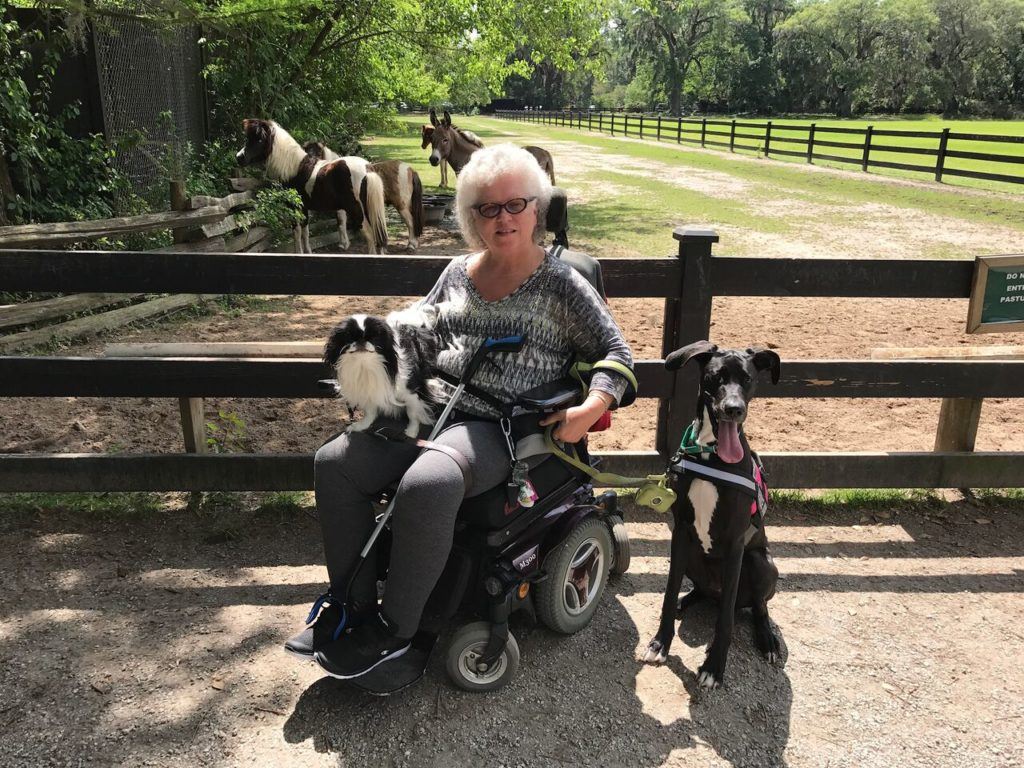
Don’t forget about the healing power of pets! Barbara Delia knows how much her furballs add joy to her day.
Not sure where to start? Luckily, we live in an age in which the Internet allows us to really explore our options, such as finding guided meditations, learning the benefits of different essential oils and natural remedies. You can also find local practitioners if you’re interested in trying out some alternative therapies.
5. Don’t stay silent. Ask for help.
The most important thing to remember is that you don’t have to do this alone. You don’t have to put on a happy face because it’s a festive time of year. If you’re struggling, ask for help. Reach out to family, friends, your church, support group – or if need be, call a local crisis center or depression hotline.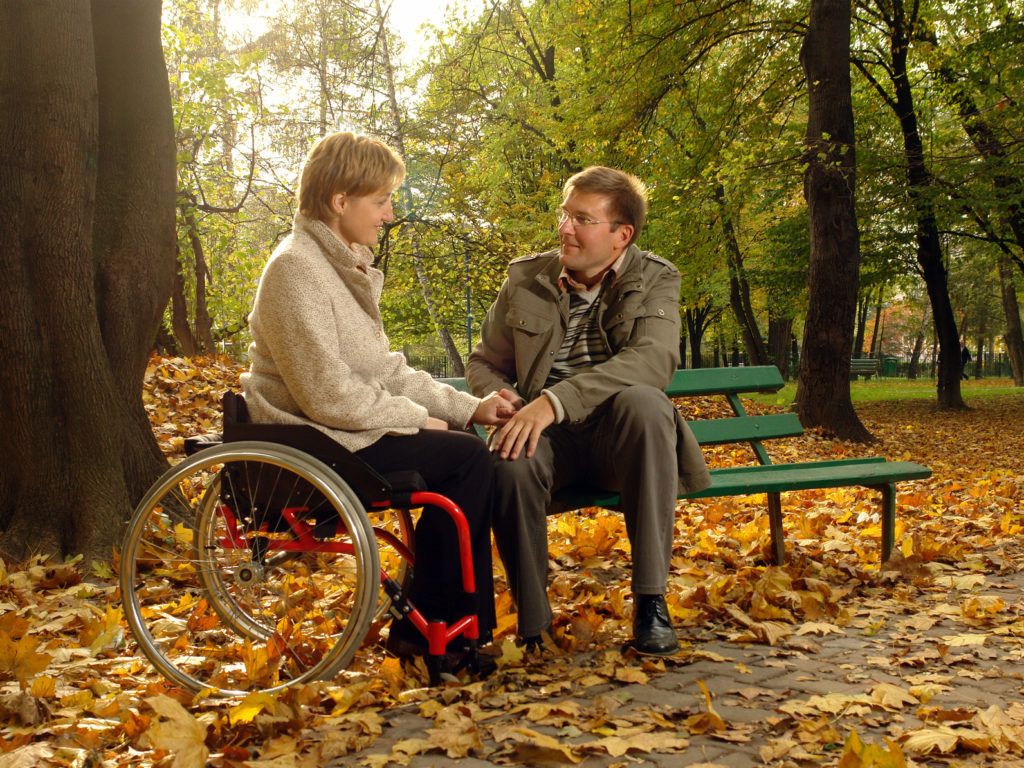 Looking for more ways to Get Out & Enjoy Life? See more pictures as idea generators here, like those from this year’s GOEL event above.
Looking for more ways to Get Out & Enjoy Life? See more pictures as idea generators here, like those from this year’s GOEL event above.
From all of us here at the CURE NATION, we wish you peace and happiness this holiday season.
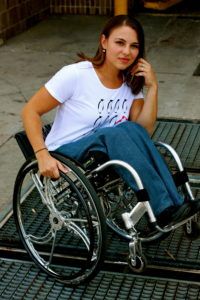 And we wish you the courage to set boundaries, say no when needed, make healthier choices, switch up traditions and do whatever it is you need to do to feel your best.
And we wish you the courage to set boundaries, say no when needed, make healthier choices, switch up traditions and do whatever it is you need to do to feel your best.
Kristina Rhoades is a life coach, writer, entrepreneur, spokesperson and a long-time wheelchair user. She resides with her husband and daughter in beautiful New Mexico and is passionate about helping others live their happiest, healthiest versions of themselves.
Connect with Kristina here: Web, Facebook, Instagram, Twitter.
Note: The information in this article should not be construed as medical advice. Please contact your physician for questions about your individual health.
Enjoy Our Free Resources & Articles
 CURE NATION is designed with you in mind, to offer assistance and education when you need it through a personal support program.
CURE NATION is designed with you in mind, to offer assistance and education when you need it through a personal support program.
All of the information you find below and on our related social media pages is meant to guide you to places, topics, and resources that enhance your life, while also connecting you with a growing group of friends.
- Sign up for our free, CURE NATION e-newsletter to have our latest stories delivered directly to you, once a month.
- Get our FREE LIFESTYLE + TRAVEL BOOKS here.
- Have an idea you’d like to share? Let us know.
- Be sure to take a minute to meet our Cure Advocates too.
You may also enjoy:
Enjoy Adapted Yoga in Las Vegas with Samantha Okumura
The Rollettes Dance Experience Shows People How to Be ‘Boundless in Life’
Nancy Sisson Chooses No Scary Chemicals in Catheters to Support Her Healthy Lifestyle
Five Confidence Boosters for People Who Roll
Cold Weather Tips for Friends with Multiple Sclerosis
Revealing Abilities That Make People Extraordinary
Edie Perkins Cheers Peer Support
How Shriners Hospitals Helped Kristina Rhoades Become a Healthy Adult

